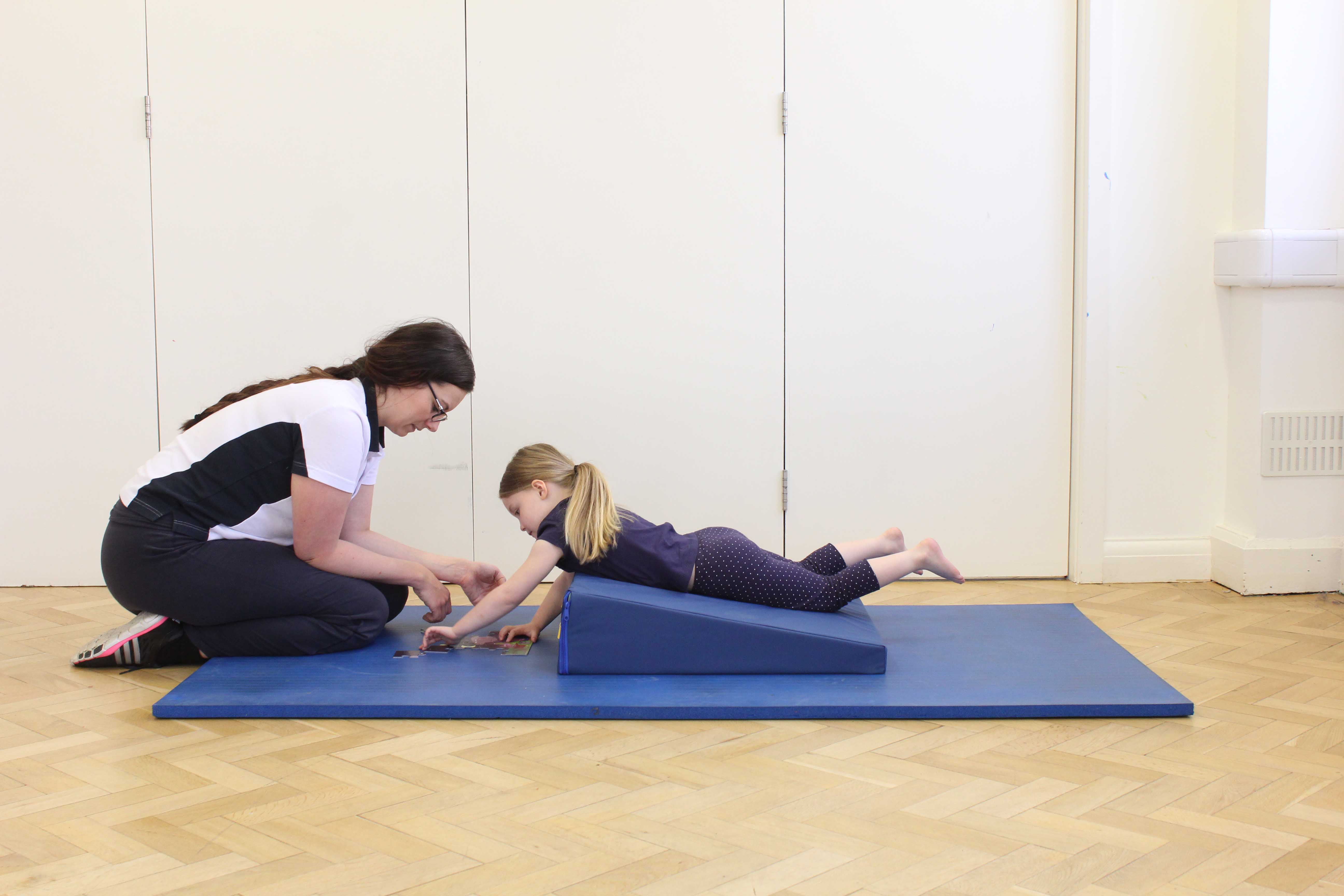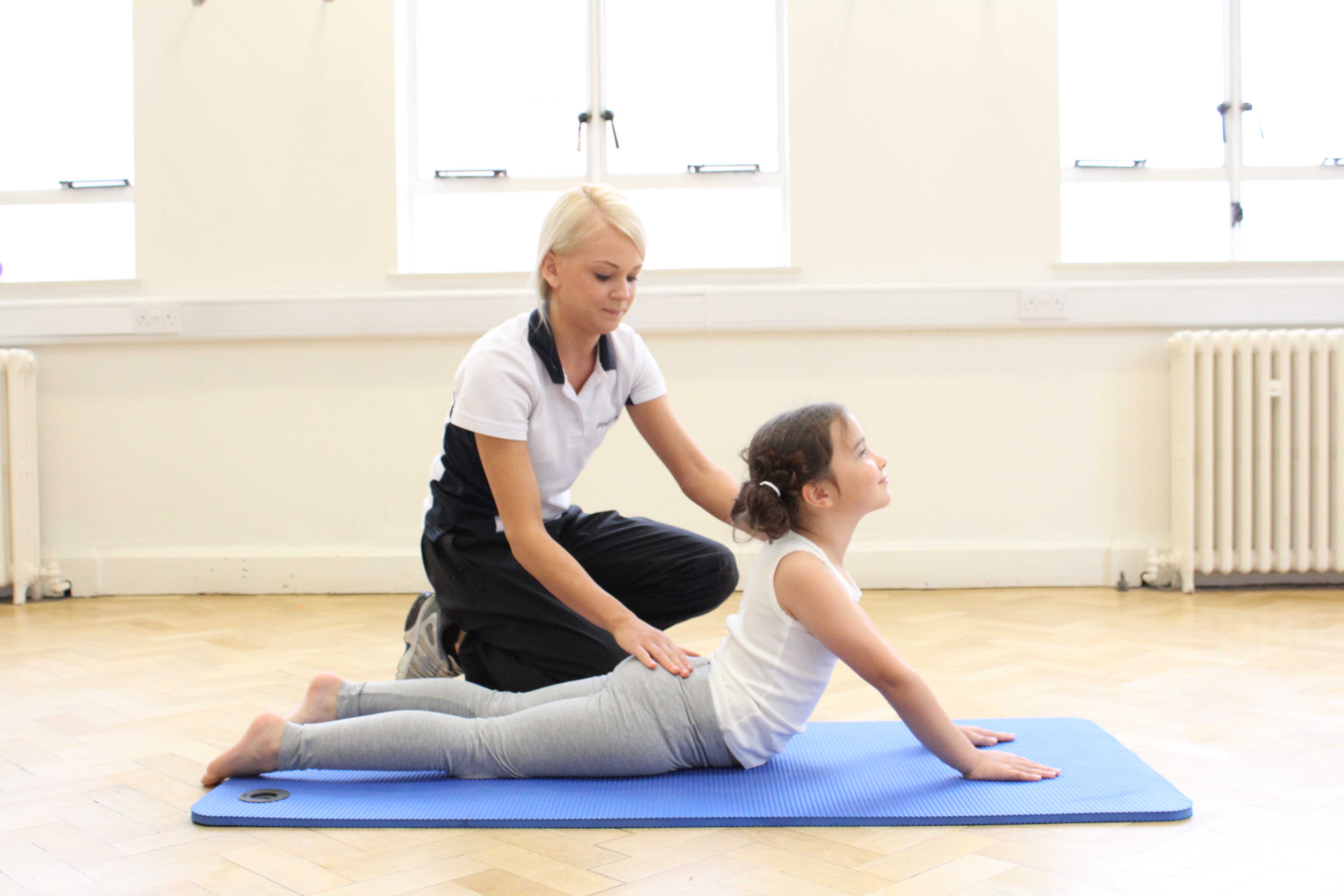What is paediatric reduced head control?
Paediatric reduced head control is when a child does not have full control over the movement and support of their head. The child may not be able to hold its head upright and may find it difficult to turn its head. This can affect a child’s development as it can limit what the child can do such as looking at and registering objects.
 Above: Maintaining head control during activity
Above: Maintaining head control during activityWhat causes reduced head control in children?
Reduced head control in children can be caused by:
- Reduced tone (hypotonia)
- Reduced motor control
- Neck muscle weakness
- Cerebral palsy
- Acquired brain injury
- Developmental delays
What are the symptoms of reduced head control in children?
Reduced head control in children can have the following symptoms:
- Child is unable to look in certain directions
- Child is unable to support own head
- Child props up head on surrounding objects
- Child finds it difficult to move head
- Child struggles to follow objects
- Child looks to one side more often
 Above: Active stretches to improve head control
Above: Active stretches to improve head controlWhat can physiotherapy do to help children with reduced head control?
There are several different treatments that your physiotherapist can use. Physiotherapy treatments for reduced head control include:
- Sensory integration techniques
- Neck muscle strengthening and stretching exercises
- Practice of head movements e.g. getting child to lift or turn head to look at pictures or toys
- Postural and play advice
Summary
Reduced head control in children can have an effect on their development as the child may be unable to support their own head and may have difficulty moving their head. This can be caused by low tone, reduced motor control or neck weakness. Physiotherapy is aimed at improving neck control and strength and will involve practice of moving the head.
To book an appointment or for more information about paediatric reduced head control contact us or call 0330 088 7800.

 0330 088 7800
0330 088 7800


































